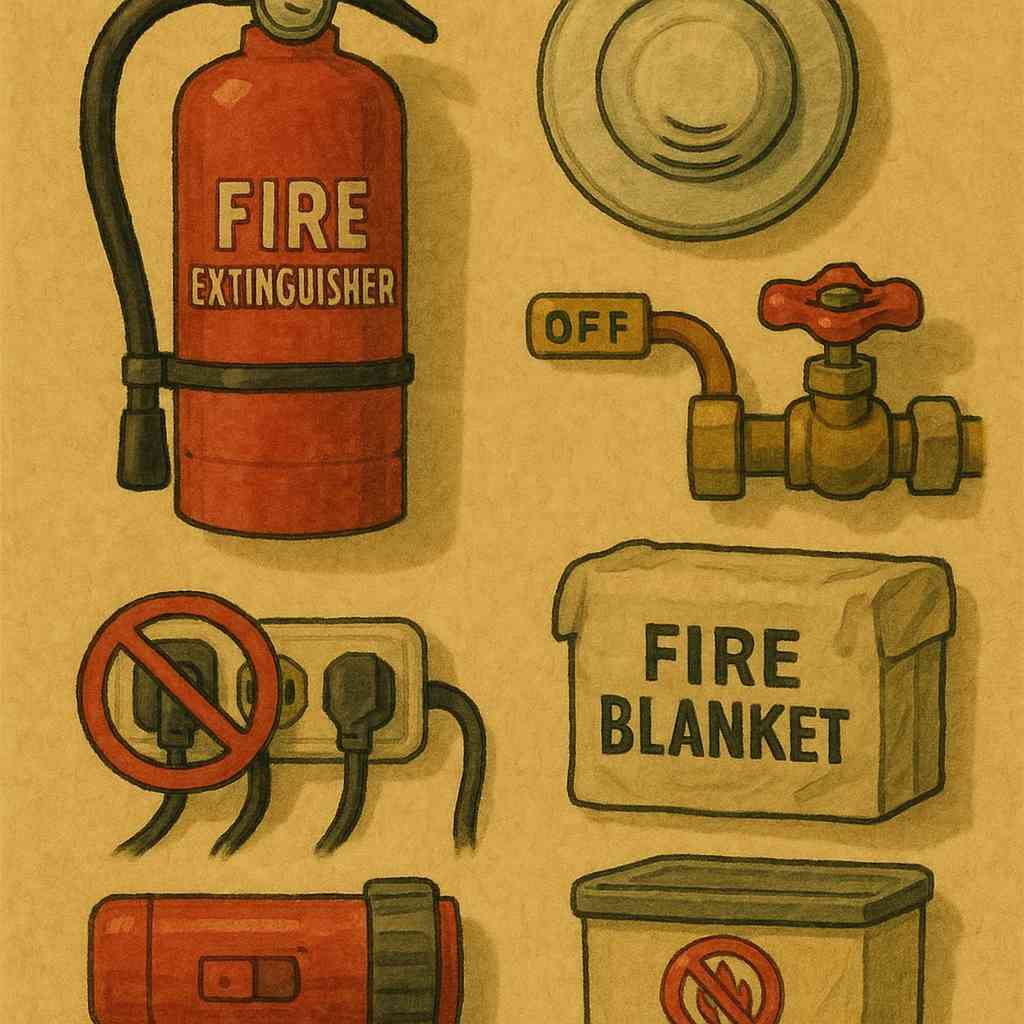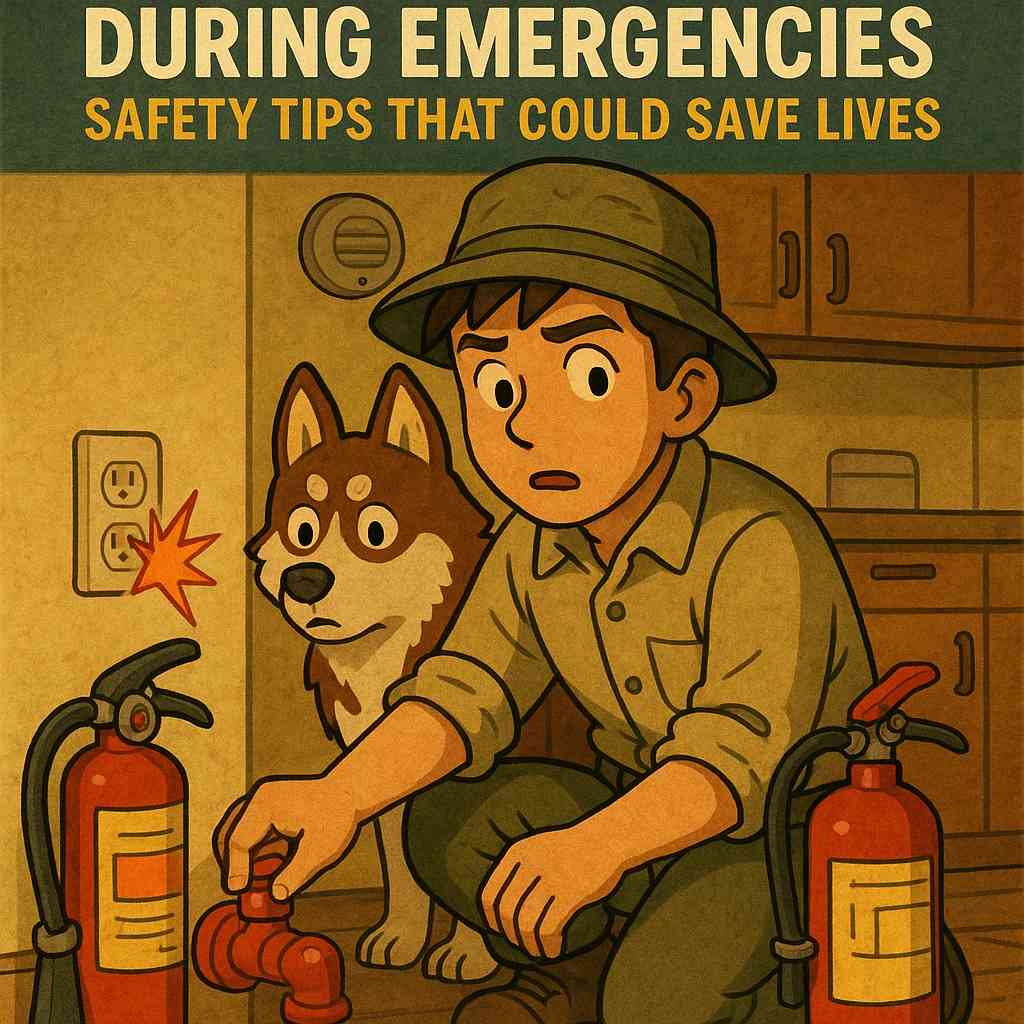Emergencies like power outages, earthquakes, or storms increase the risk of accidental fires. A single spark from a candle or overloaded outlet can destroy everything. The scary part? Many of these fires are preventable. This guide will show you how to protect your home from fire during crises—before it’s too late.
- ✅ Why Fire Prevention is Crucial During Emergencies
- ✅ Common Fire Hazards in Emergency Situations
- ✅ Practical Fire Prevention Tips for Your Home
- ✅ What to Do If a Fire Starts During a Disaster
✅ Why Fire Prevention is Crucial During Emergencies
During emergencies, people often rely on candles, generators, or camp stoves—tools that, while helpful, also increase fire risks. Fire departments may be overwhelmed or unreachable. That’s why preventing fires in the first place is essential. By preparing ahead of time and adjusting how you use certain items, you greatly reduce the risk of your emergency turning into a disaster.
✅ Common Fire Hazards in Emergency Situations
Know what causes fires so you can avoid them:
- Candles: Left unattended or near flammable materials.
- Overloaded Power Strips: Especially with space heaters or appliances.
- Improper Generator Use: Indoors or near flammable liquids.
- Open-Flame Cooking: Using stoves or grills inside the home.
- Damaged Wiring: Caused by earthquakes, flooding, or rodents.
Awareness is the first step toward prevention.

✅ Practical Fire Prevention Tips for Your Home
Here’s how to protect your home and loved ones:
- Use LED Lanterns: Replace candles with battery-powered lights.
- Inspect Wires and Outlets: Look for fraying, discoloration, or burn marks.
- Keep Fire Extinguishers Ready: Have at least one per floor, and know how to use it (remember PASS: Pull, Aim, Squeeze, Sweep).
- Store Fuel Safely: Keep gasoline and propane away from living areas and heat sources.
- Create a No-Flame Zone: Designate areas where no open flames are allowed, especially around children.
Simple steps go a long way toward minimizing fire risks.
✅ What to Do If a Fire Starts During a Disaster
If a fire breaks out during an emergency:
- Stay Calm and Act Fast: Alert everyone and follow your escape plan.
- Use Extinguishers if Safe: Only attempt to extinguish small fires if you’re confident and trained.
- Crawl Low Under Smoke: Toxic smoke rises—stay low to breathe better.
- Call Emergency Services: As soon as it’s safe to do so, even during wider disasters.
- Never Re-Enter: Once out, stay out. Lives are more important than belongings.
Your priority is survival—never take unnecessary risks.
During chaotic times, a preventable fire is the last thing you want. By removing fire hazards, preparing your space wisely, and knowing how to react, you take control of your home’s safety—even when everything else feels uncertain. Fires don’t wait, and neither should you. Make prevention part of your emergency plan today, and protect what truly matters: your life and the lives around you.
✅ Frequently Asked Questions (FAQ)
- Q1. Are candles safe to use during a blackout?
No. It’s safer to use battery-powered LED lights or lanterns to avoid fire hazards. - Q2. How do I know if my fire extinguisher still works?
Check the pressure gauge—it should be in the green zone. Also, ensure the pin and tamper seal are intact. - Q3. What’s the safest way to store propane?
Store propane tanks upright in well-ventilated, outdoor areas away from heat and flame. - Q4. Can I use a gas stove indoors during a disaster?
Never use gas grills or camp stoves indoors. Use only equipment rated for indoor use with proper ventilation.
Want to build a safer emergency setup? Start with our guide on emergency fire kits to ensure you’re always ready to control the flames.
For official fire safety guidelines, visit the Ready.gov Fire Safety Resource.

